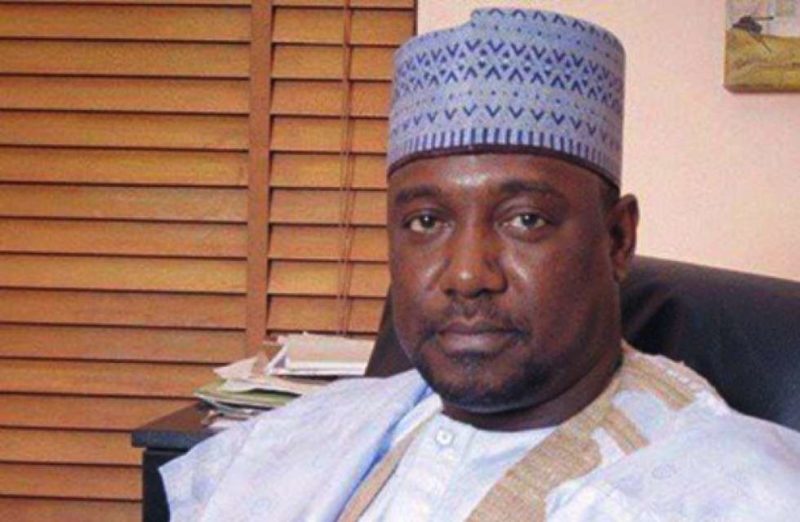While Niger State is among the least urbanised states in Nigeria; however, paradoxically, it is one of the few states that is determined to promote sustainable human settlements that are to be guided by a robust and comprehensive policies and master plans, good urban governance principles and well-funded.

The Brief obtained from Professor Mustapha Zubairu, Coordinator, Niger State Urban Support Programme (NSUSP), highlighted reasons behind the current moves by the Niger State Government to promote sustainable urbanisation. These moves can be attributed to the realisation of Governor Alhaji Abubakar Sani Bello, Governor of Niger State, in two critical areas.
First, is his realisation that effective, functional and sustainable towns and cities depends on have in place good governance, especially transparency and accountability to their residents; and their ability to operate on a self-sustaining basis.
Second, is his realisation that over-reliance of the states and local governments on fiscal transfers from the Federation has substantially contributed to the top-down approach to the management of development at the state and local government levels to the exclusion of the residents and other stakeholders in key decisions.
Thus, Governor Alhaji Abubakar Sani Bello has called for a paradigm shift in urban management in the state as elsewhere in the country that is built on good understanding, mutual respect and a sustainable partnership between the state government and the residents of our towns and cities. This will enable local ownership, willingness to pay for service provision and stimulating civic pride town and cities.
In May 2019, Governor Bello attended the Second International Conference on National Urban Policy, held in Paris, France and organised by the UN-Habitat. One of the take-home lessons of is his eagerness and the commitment of his administration to develop sustainable human settlements sector in a holistic, comprehensive and integrated manner through the adoption of State Urban Development Policy and master plans for towns and cities in the state. Adopting these measures will ensure that the resources of the state especially land for urban development, will be used efficiently and effectively for the present and future generations without unnecessarily depleting good agricultural land.
As an immediate fall-out of the participation of the state in the International Conference on National Urban Policy, the Niger State Government has secured the assistance of UN-Habitat and other partners in four main areas namely:
- Preparation of the State Urban Development Policy (SUP) by adopting a robust participatory approach and taking cue from National Urban Development Policy reviewed in 2012.
- Preparation of Integrated Development Plans for Minna and Suleja to guide their future development and make them more compact, integrated, connected, resilient and socially inclusive.
- Preparation of the Master Plan for a new Smart city near Suleja that will provide a conducive living environment and contribute to achieving sustainable economic development, with ICT-driven management of infrastructure and natural resources, and governance.
- Building the capacities of the state and other institutions in charge of the development and management of the cities and towns.
Niger State Government has received a grant from the South Korean Government to enable it prepare its Urban Policy and Smart City Strategy, alongside Iran and Myanmar. The support is to offer the three pilot projects a platform to foster synergy, coherence, capacity development and mutual learning and exchange globally on National/Sub-national Urban Policy.
Through this assistance, it is hoped that the state government and other stakeholders can begin to use urban policy as an instrument for public and political awareness of the gains to be obtained from sustainable urban development. In addition, World Bank, OEDC and Cities Alliance, as International Development Institutions, are expected to participate in the normative planning and for the opportunity of financing related development projects from the Policy; and UN-Habitat is providing the Government technical assistance.
The preparation of the Niger State Urban Policy has already started in the state. The strategies adopted to ensure effective and result oriented participatory approach to formulating the Sate policy include the following:
- Identification of key stakeholders in each of the 25 local governments of the state that have been sensitised and engaged in generating data on the development challenges and economic development potentials, which resulted in the preparation of the Feasibility and Diagnostic Reports for the SUP;
- Organisation of Town Hall meetings in four cities where the Feasibility and Diagnostic Reports would be presented for concurrence and validation;
- Organisation of a Statewide Urban Forum all stakeholders, to develop a shared understanding of the development challenges of the state; and a shared vision of the state they all want in the future.
- Preparation of the Draft SUP for circulation and review.
- Organisation of a statewide Workshop to validate and adopt the SUP with a clean copy presented to the Governor.
- Passing the adopted Final SUP into law by the State House of Assembly for implementation across the state.
It goes without gainsaying that the above initiatives of the Niger State Government are highly commendable and well-intended. Hopefully, this novel move by Niger State Government in stimulating pride in good urban management is bound to have several reverberations in other states of the Federation.
By Professor Johnson Bade Falade (FNITP)
